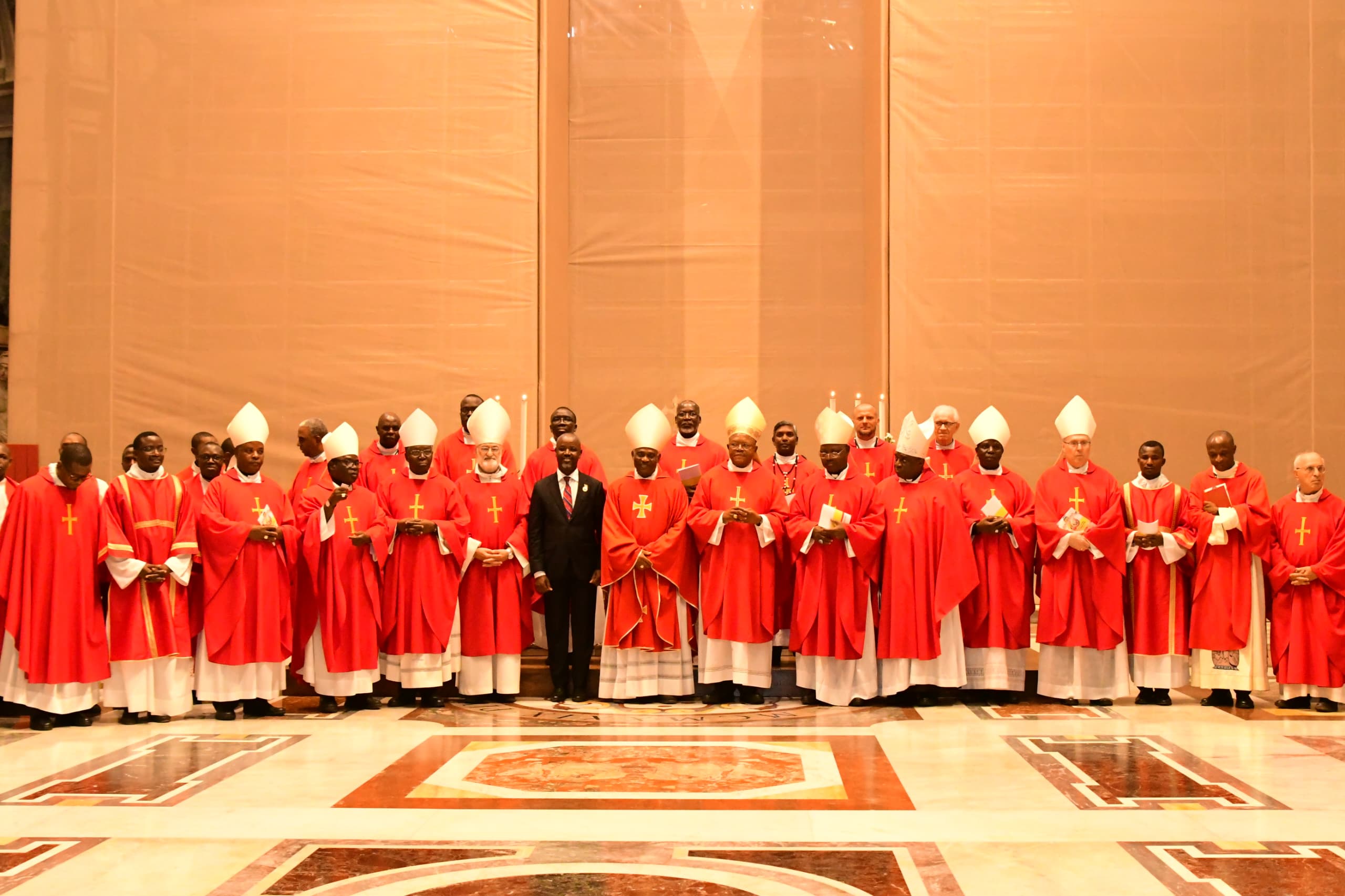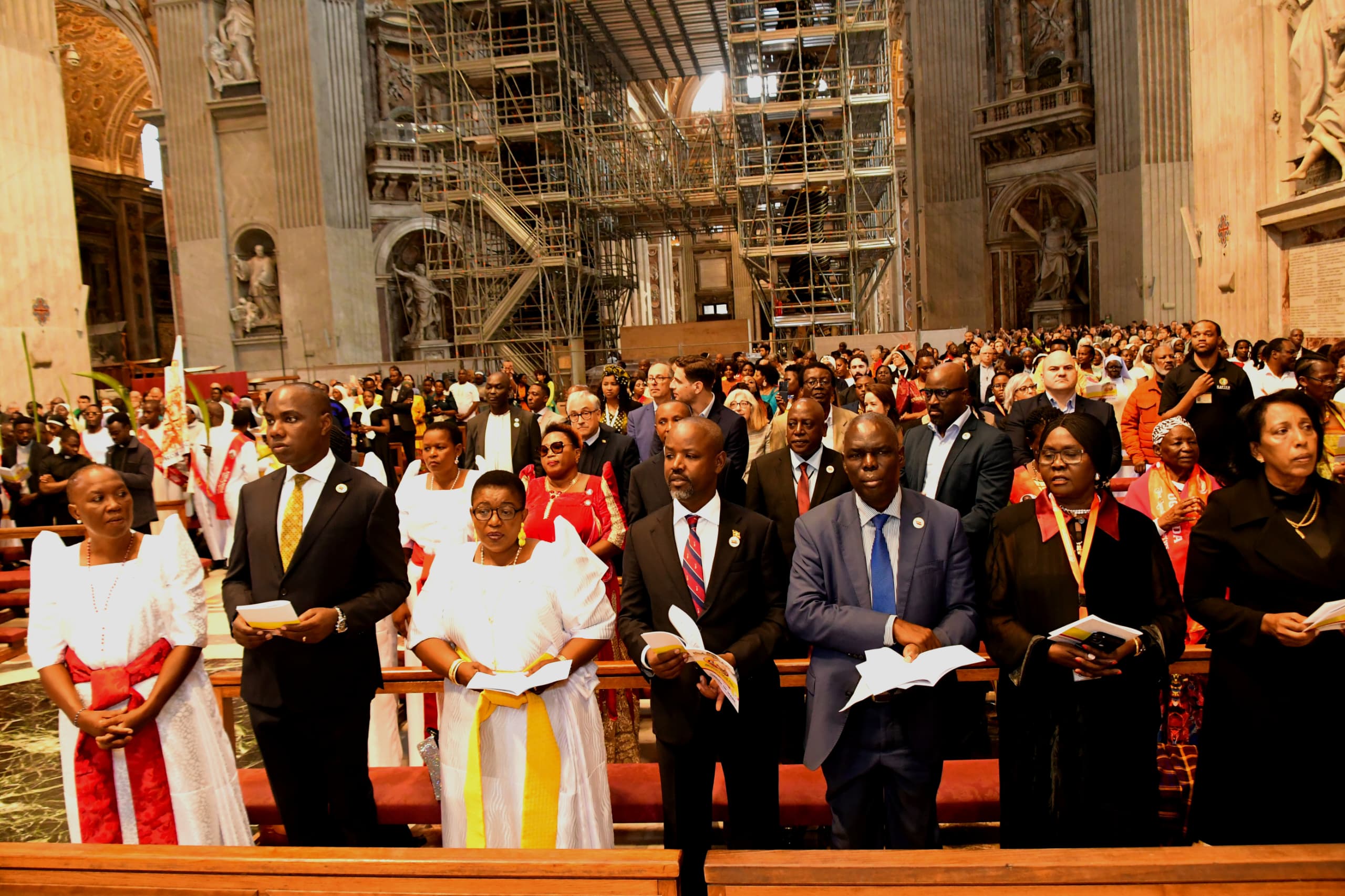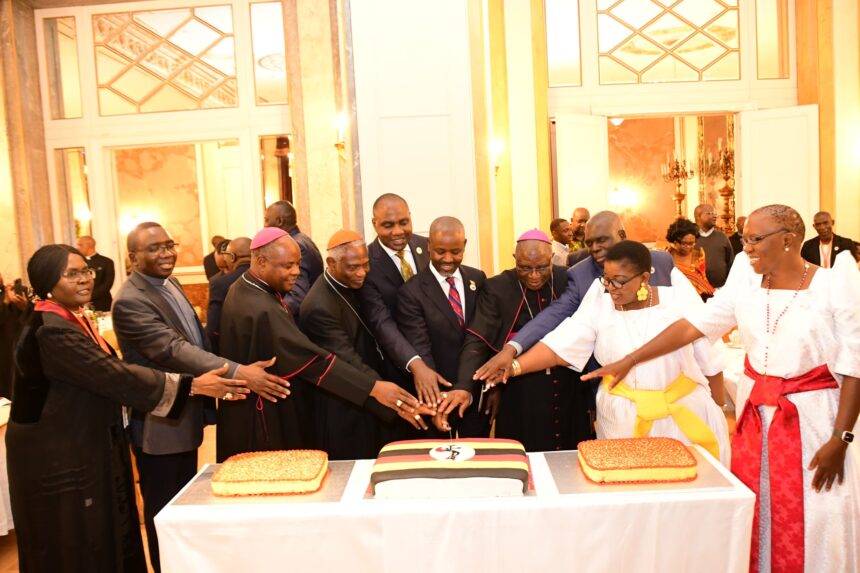At a ceremony marking the 60th anniversary of the canonization of the Uganda Martyrs, President Yoweri Museveni praised the enduring impact of Christianity on Uganda, particularly in education, health, and social values.
His remarks, delivered by Deputy Speaker Thomas Tayebwa at St. Peter’s Basilica in Vatican City, underscored how Christianity introduced scientific knowledge and strengthened Uganda’s moral framework, blending traditional beliefs with Christian teachings.

President Museveni took the opportunity to emphasize the practical “value addition” Christianity brought to Uganda, notably in areas such as disease prevention and education. He noted that while Uganda’s indigenous groups already believed in a supreme God, Christianity’s introduction of scientific knowledge—like boiling milk to prevent illness—has had lasting benefits.
The President pointed out that Christianity enhanced existing cultural practices by introducing values of hard work, neighborly love, and resilience, especially during Uganda’s difficult periods of armed conflict. These values, Museveni stressed, continue to shape the nation’s progress.

The Uganda Martyrs’ canonization 60 years ago marked a turning point for Christianity in Africa, symbolizing not only spiritual devotion but also the integration of faith with positive societal development. The Martyrs’ legacy lives on, inspiring both national and global audiences.
Continuing the Legacy of the Uganda Martyrs:
Cardinal Peter K. A. Turkson, delivering his homily at the Vatican event, emphasized the Martyrs’ relevance to modern Africa. He called upon young people to follow the example set by the Uganda Martyrs, who, despite their youth, stood firm in their faith. He described them as “true Africans transformed by the Gospel,” and urged today’s generation to let their witness inspire efforts in combating corruption and promoting integrity.
“The martyrs were young men who lived the Gospel fully,” Turkson said. “Their faith, integrity, and courage are a call to each of us to uphold these values in our personal and public lives.”
Cardinal Turkson also linked the Martyrs’ legacy to Africa’s broader struggles with governance and transparency, stating that their commitment to truth and justice should serve as a model for leadership across the continent.
A Historical Reflection:
As Uganda celebrates the 60th anniversary of the Martyrs’ canonization, the nation reflects on the historical journey of these 45 young Christians—20 Catholics and 25 Anglicans—who were executed between 1885 and 1887 by the orders of King Mwanga II of Buganda for refusing to renounce their faith. In 1964, Pope Paul VI officially recognized their sacrifice by declaring them saints, solidifying their place in history as enduring symbols of spiritual courage.
The Uganda Martyrs Shrine in Namugongo has since become a revered pilgrimage site, attracting millions of visitors every year, eager to honor the sacrifice of these young men and draw inspiration from their story. The shrine stands as a reminder of the strength of faith and the power of conviction, even in the face of persecution.
National and Global Significance:
President Museveni, in his message, acknowledged that the canonization of the Martyrs had far-reaching significance beyond Uganda’s borders. The example of the Uganda Martyrs, he said, has resonated with Christians around the world, especially those facing persecution for their beliefs.
“The Martyrs’ unwavering commitment to their faith has made them a beacon of hope for Christians facing challenges everywhere,” Museveni noted. “Their legacy is not only a Ugandan treasure but also a symbol of resilience for all persecuted Christians globally.”
Museveni’s emphasis on the “value addition” of Christianity to Ugandan society highlighted the broader theme of the event: that faith and practical societal development can and should go hand in hand. The introduction of modern scientific knowledge, improved healthcare practices, and educational advancements were seen as direct benefits brought to Uganda by early Christian missionaries.
The Martyrs’ Legacy Today:
Deputy Speaker Thomas Tayebwa, leading Uganda’s delegation to the Vatican, echoed Museveni’s sentiments by noting how Uganda’s faith-based values continue to inform the country’s development strategies. He highlighted that the legacy of the Uganda Martyrs remains a guiding force for both governance and social values in the country today.
The ceremony also featured speeches from several prominent Ugandan figures, including Ambassador Stephen Mubiru, Archbishop of Kampala Paul Ssemogerere, and Archbishop Emeritus Emmanuel Cardinal Wamala, all of whom praised the Martyrs for their enduring role in shaping Uganda’s Christian identity and contributing to the nation’s spiritual and moral compass.
Minister for General Duties in the Office of Prime Minister Rt. Hon Justine Kasule Lumumba, State Minister of Finance, Henry Musasizi, and MPs Sarah Opendi, Joseph Ssewungu, and Herbert Ariko were among the dignitaries in attendance. Former opposition leaders Salam Musumba and Mathias Mpuuga also joined the commemoration, which honoured the 45 Ugandan martyrs canonized by Pope Paul VI in 1964.
The 60th anniversary of the Uganda Martyrs’ canonization not only commemorated their sacrifice but also reinforced the ongoing relevance of their legacy. From introducing scientific advancements to reinforcing core societal values, Christianity has had a profound and lasting impact on Uganda.
As the world continues to look to the Uganda Martyrs as models of faith, integrity, and sacrifice, President Museveni’s words remind us that their legacy is as much about social progress as it is about spiritual devotion. The commemoration at St. Peter’s Basilica underscored that Uganda’s journey of faith, enriched by the Martyrs, remains a testament to the enduring power of belief to transform both hearts and societies.

